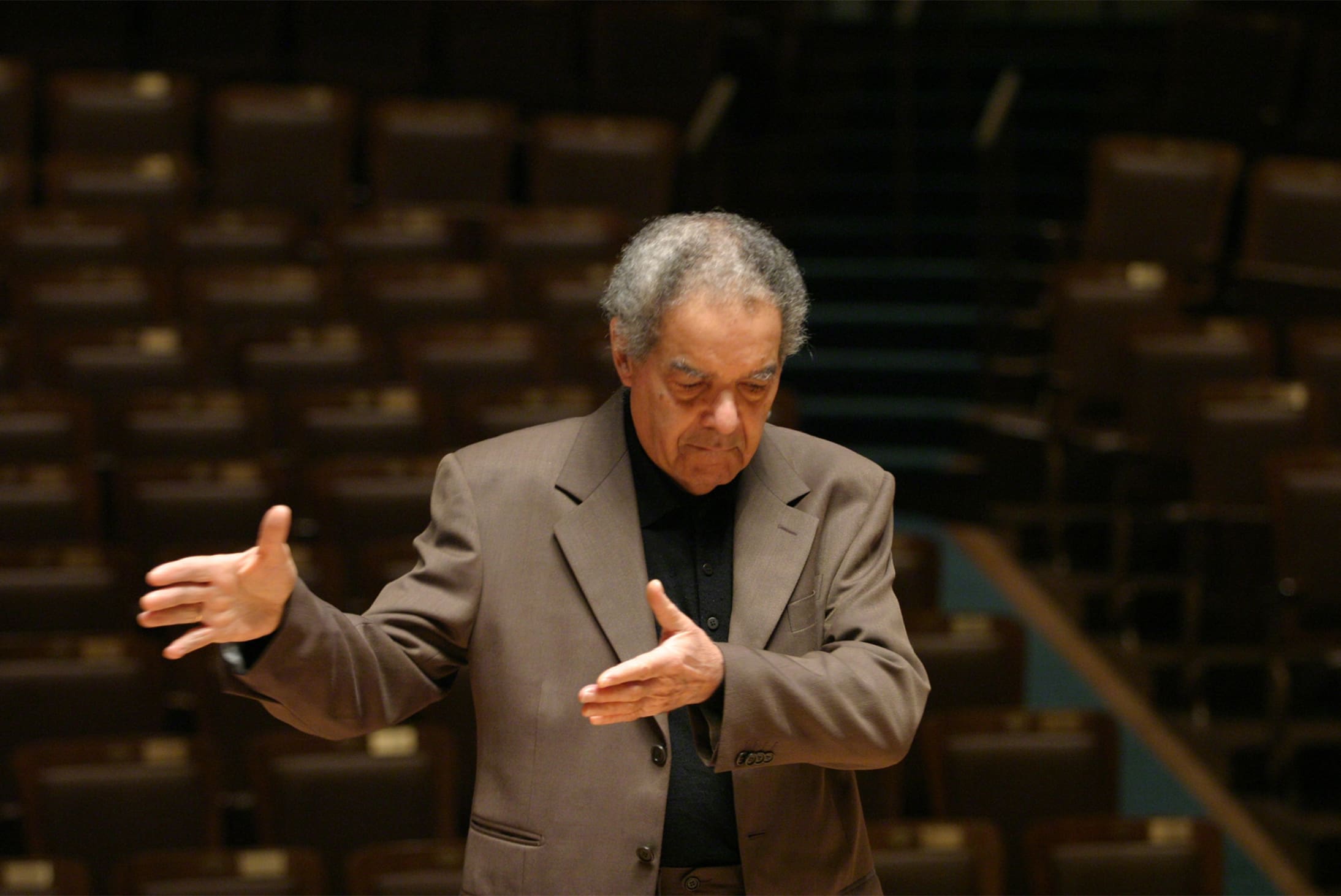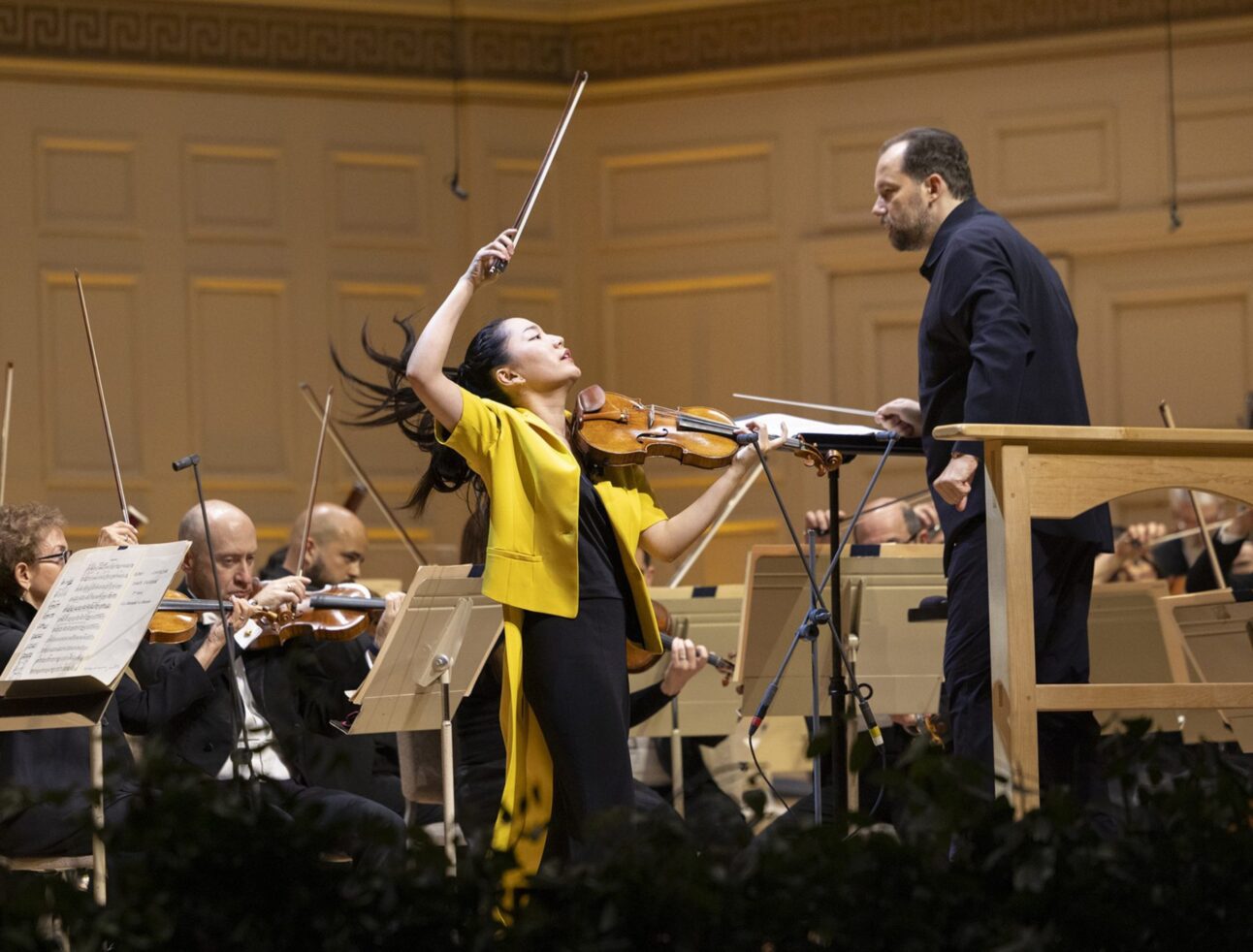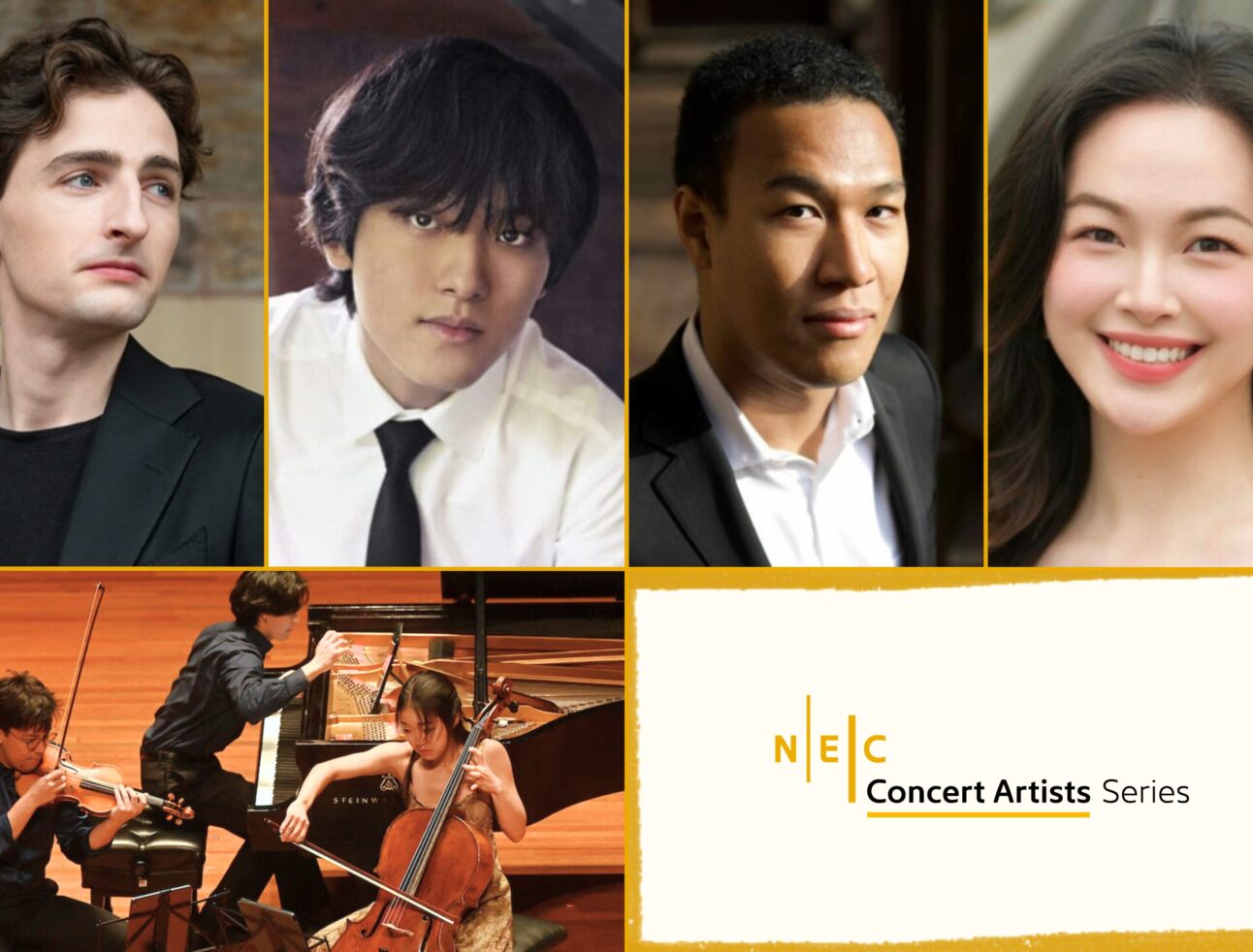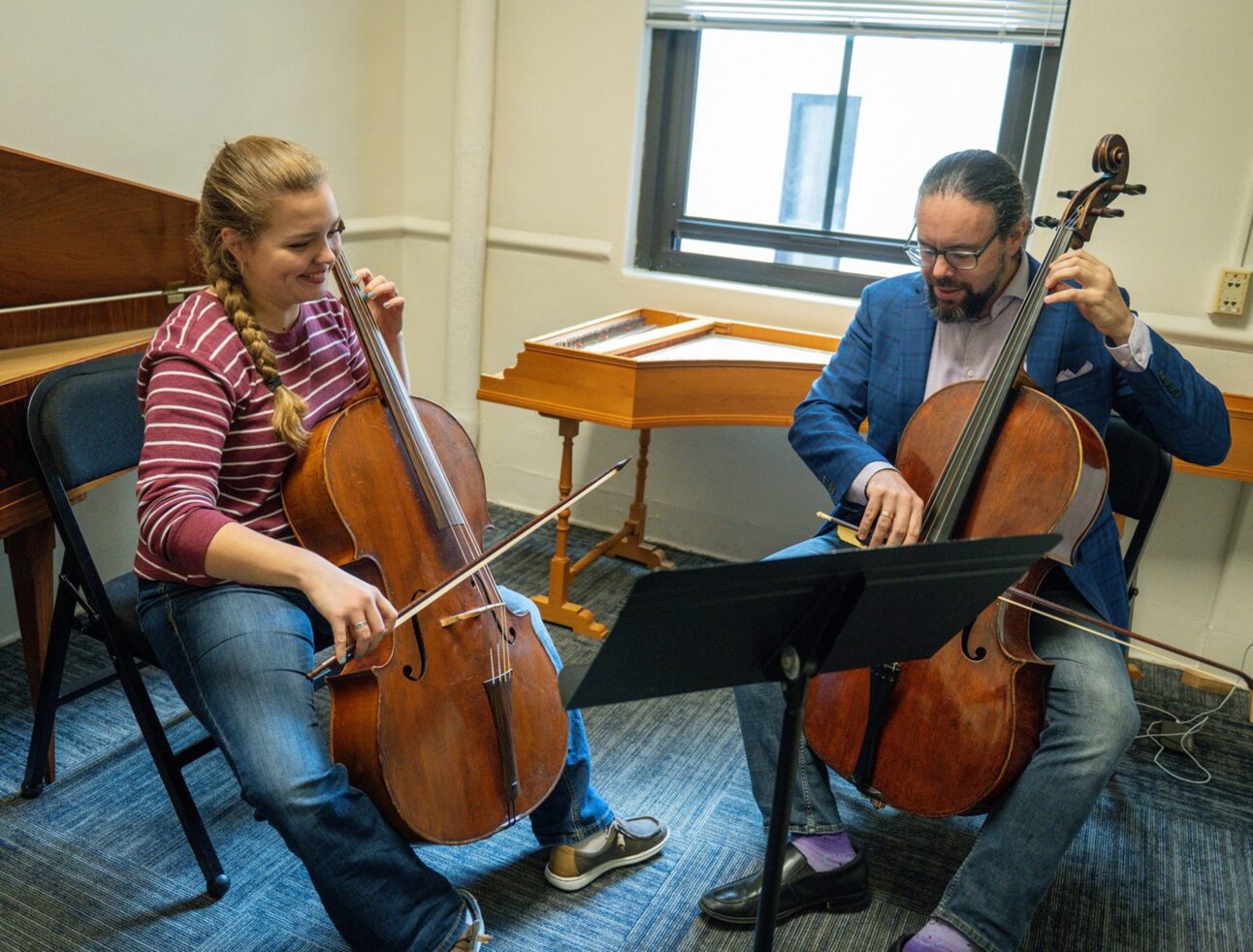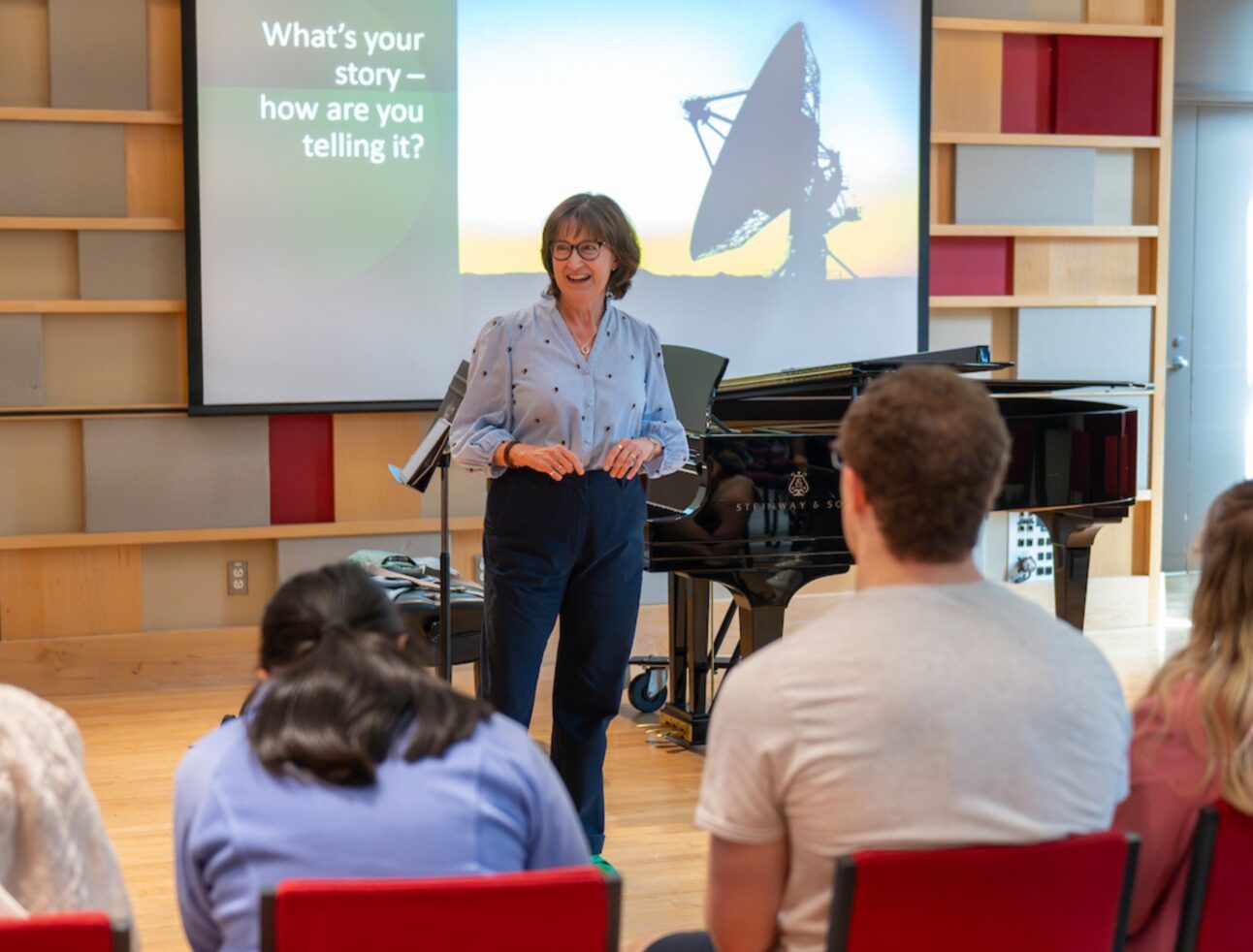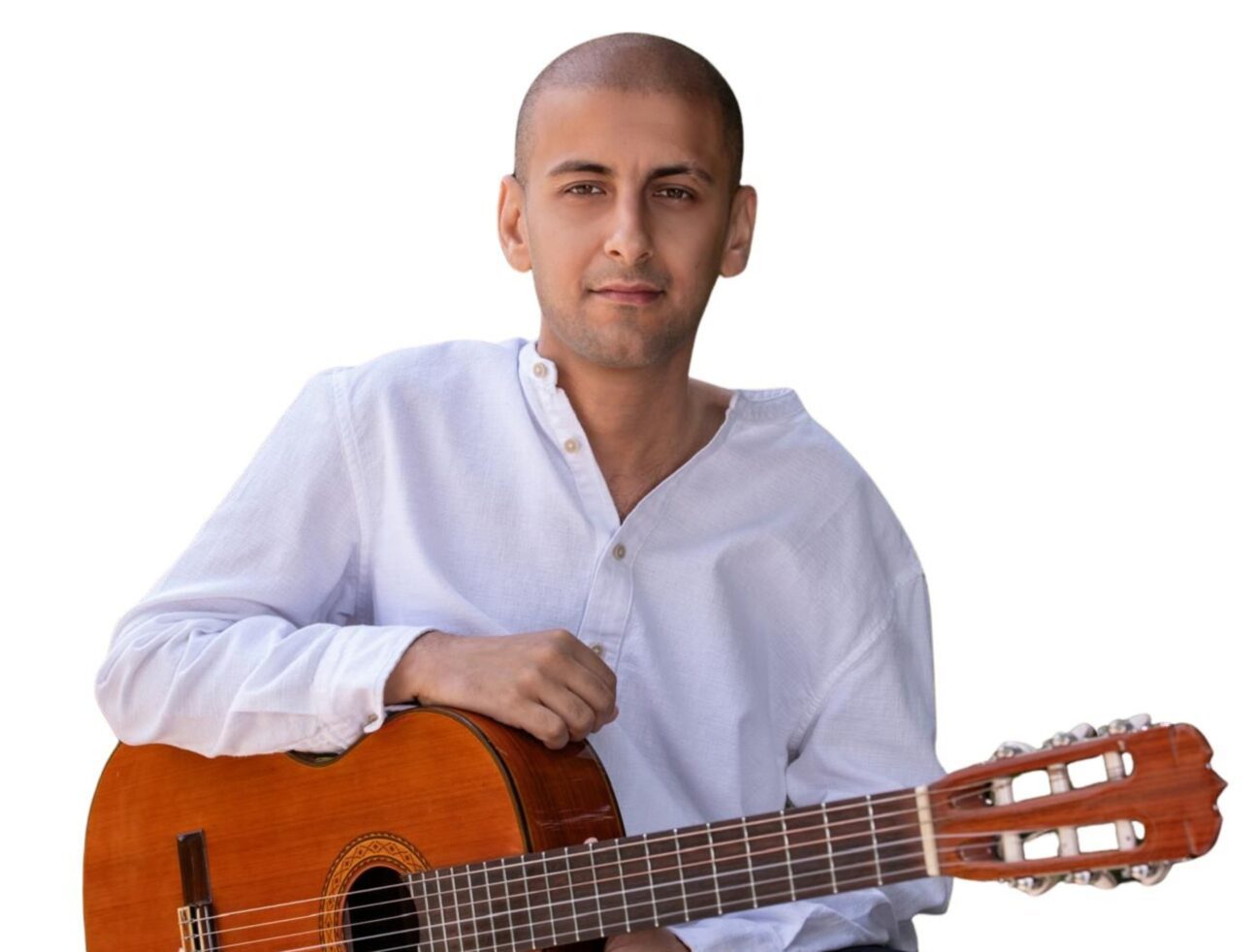On Thursday, October 19, the orchestra’s first concert of the season honors the centennial of the trailblazing theorist, composer, and long-time NEC faculty member.
By the time MacArthur Fellow and NEA Jazz Master George Russell arrived at NEC in 1969, he was already a major figure in jazz. He’d performed with Benny Carter, written for Dizzy Gillespie, and revolutionized jazz theory with the publication of his book, “The Lydian Chromatic Concept of Tonal Organization.” This year marks Russell’s centennial, and his music and influence still resonate.
“George Russell was a leader in several key developments in the history of jazz,” says New England Conservatory Jazz Studies co-chair Ken Schaphorst. Russell’s theory was instrumental in inspiring greats like John Coltrane, Miles Davis, and Bill Evans. “Without George Russell,” Schaphorst says, “there would be no Kind of Blue.”
“George Russell was an architect of the music,” said NEC faculty member Ethan Iverson in a piece on Russell’s first three albums. His compositions “retain their power to shock and amaze.” Audiences can experience some of that amazement on Thursday, October 19, when Schaphorst conducts the NEC Jazz Orchestra in The Music of George Russell at Jordan Hall.
35 years of teaching innovation
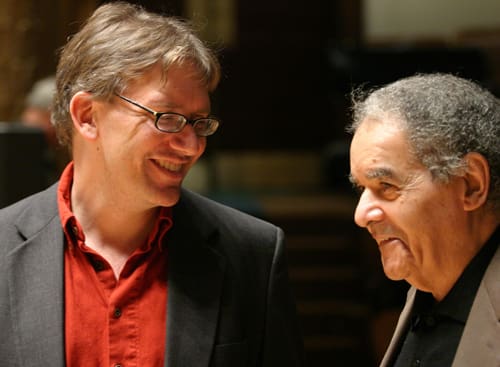
Russell taught at NEC until 2004, making an indelible mark on the individuals he worked with and the institution. From the outset of his tenure, his wealth of knowledge and experience became a boon for his students. Says Schaphorst, “His interest in theory, composition, and creativity laid the foundation for NEC’s innovative approach to teaching jazz.”
Among the many influenced by Russell’s ideas is pianist, composer, and NEC faculty member Ben Schwendener, who worked closely with Russell. “I was introduced to the Lydian Chromatic Concept (LCC) through George’s music initially,” said Schwendener “However, it was and is the objective nature and science of this way of thinking that has allowed me to continue freely developing my own creative path.”
Russell’s distinguished students at NEC include Jason Palmer, Don Byron, Marty Ehrlich, Satoko Fujii and Ricky Ford. He coached small ensembles, conducted large ones, and participated in special events including the 2003 celebration for Jordan Hall’s centennial. His monumental, stylistically diverse 1992 commissioned work “Time Line” marked NEC’s 125th anniversary.
Russell’s innovative approach to teaching and jazz lives on at NEC. “As George often said,” Schwendener notes, “the LCC is an open-ended theory, ever-evolving and opening up creative possibilities. NEC has offered a home for its continuation, and has supported every effort I have made to accurately transmit this information and preserve the originator’s intent.”
Russell and the NEC Jazz Orchestra
During many of his 35 years at NEC, Russell worked with students in the NEC Jazz Orchestra to prepare an end-of-semester concert of his music. The exposure to his Lydian Chromatic Concept and his Vertical Form approach to composition demanded high levels of alertness and intuition from the players.
“I was lucky enough to work with George when I started teaching at NEC in 2001,” says Schaphorst. “And since I was intimidated by George during my time as a student at NEC in the 1980s, I was a bit shocked when George went out of his way to encourage me personally, suggesting that I perform more of my own music with the NEC Jazz Orchestra.” That generosity of spirit and focus on expanding the music rippled out and was felt by many.
“Under Russell’s guidance, I conducted ‘The African Game’ in December 2003 in a celebration of his 80th birthday,” Schaphorst continues. “When the band performed that piece again in 2004 in New York, I was struck by how many jazz legends were there in the room, paying respect to George and his legacy. I’m looking forward to performing most of ‘The African Game’ again on October 19 in honor of George’s centennial.
It’s been wonderful to rehearse that music again and feel George’s powerful spirit.”
A lasting impact
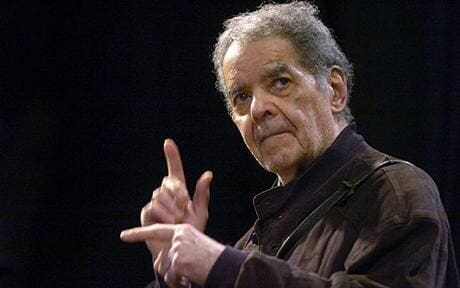
Russell’s music, ideas, and legacy continue to endure, within NEC and beyond.
“The contribution of George Russell to the musical community cannot be overestimated,” says Schwendener. “He dedicated more than fifty years of his life to developing a theory of understanding music that came entirely from his intuition, experience and practical research both as a composer/bandleader and educator.”
For scores of students that went on to become significant teachers and artists in their own right, Russell serves as a powerful, enduring influence. “It has been my honor to have had the opportunity to work closely with George for so many years,” says Schwendener. “I have continued to teach the Lydian Chromatic Concept here at New England Conservatory to this day.”
